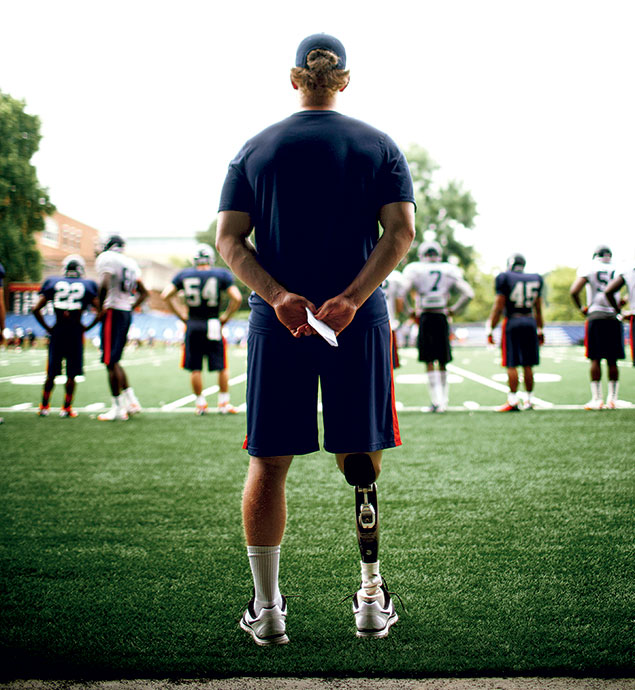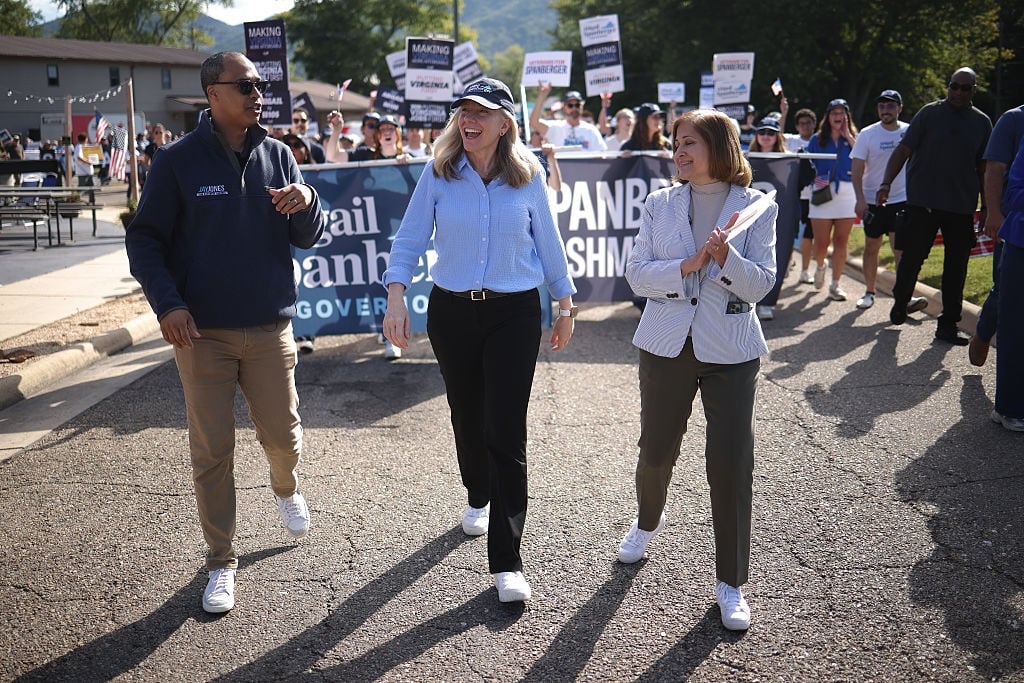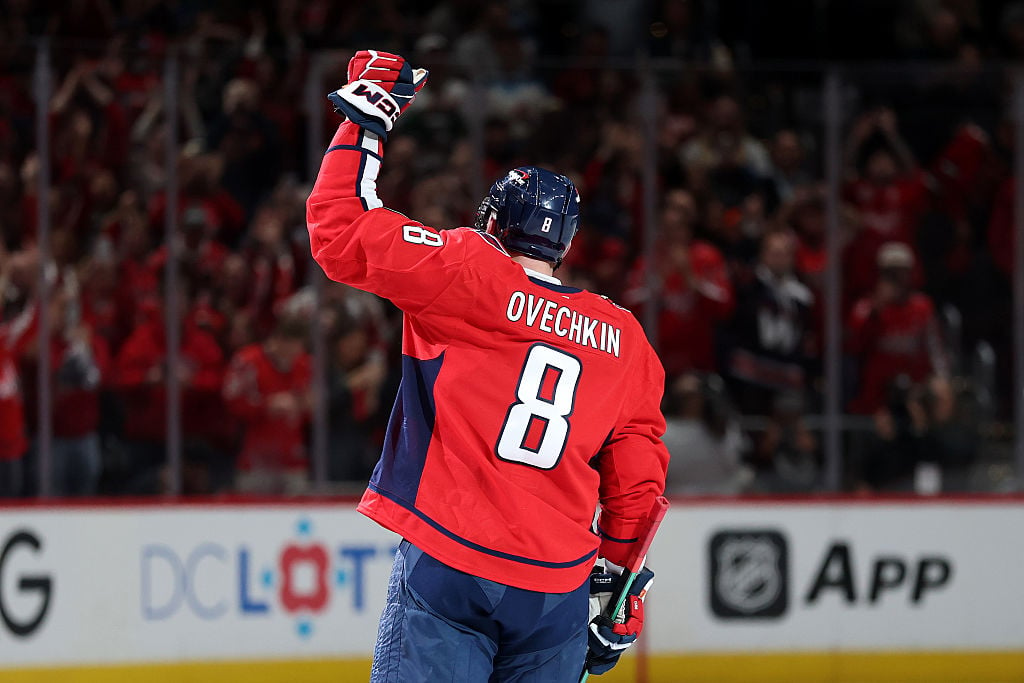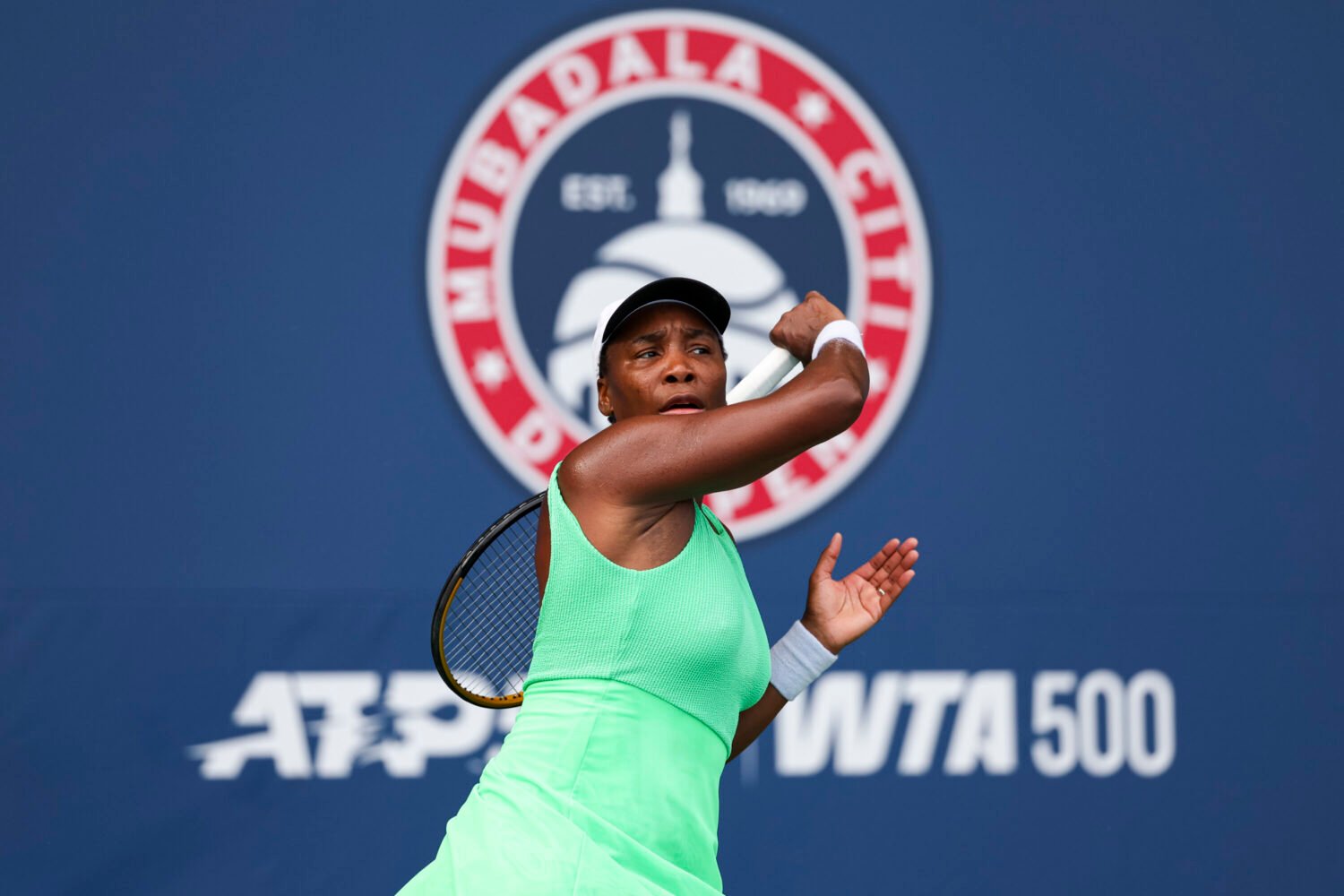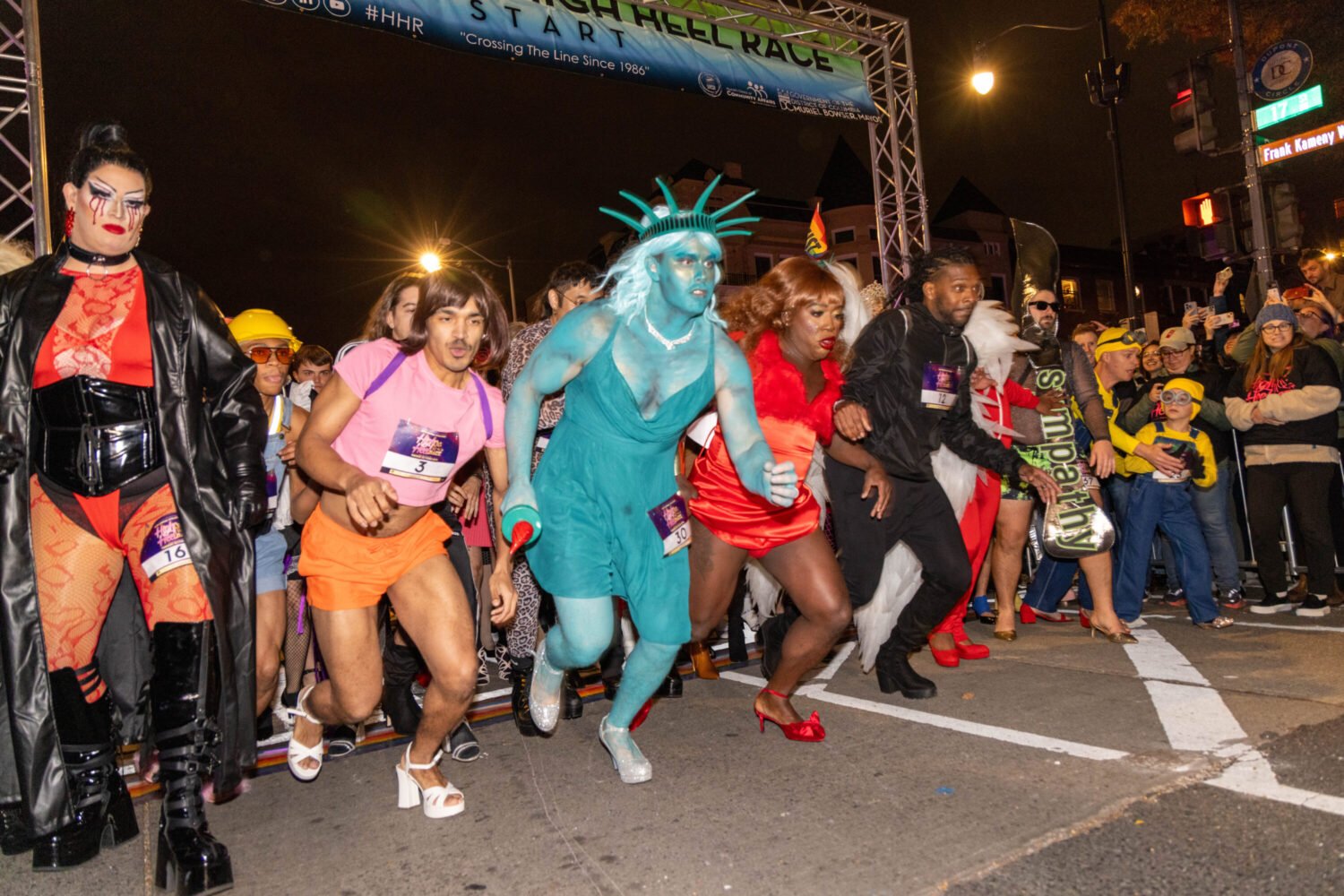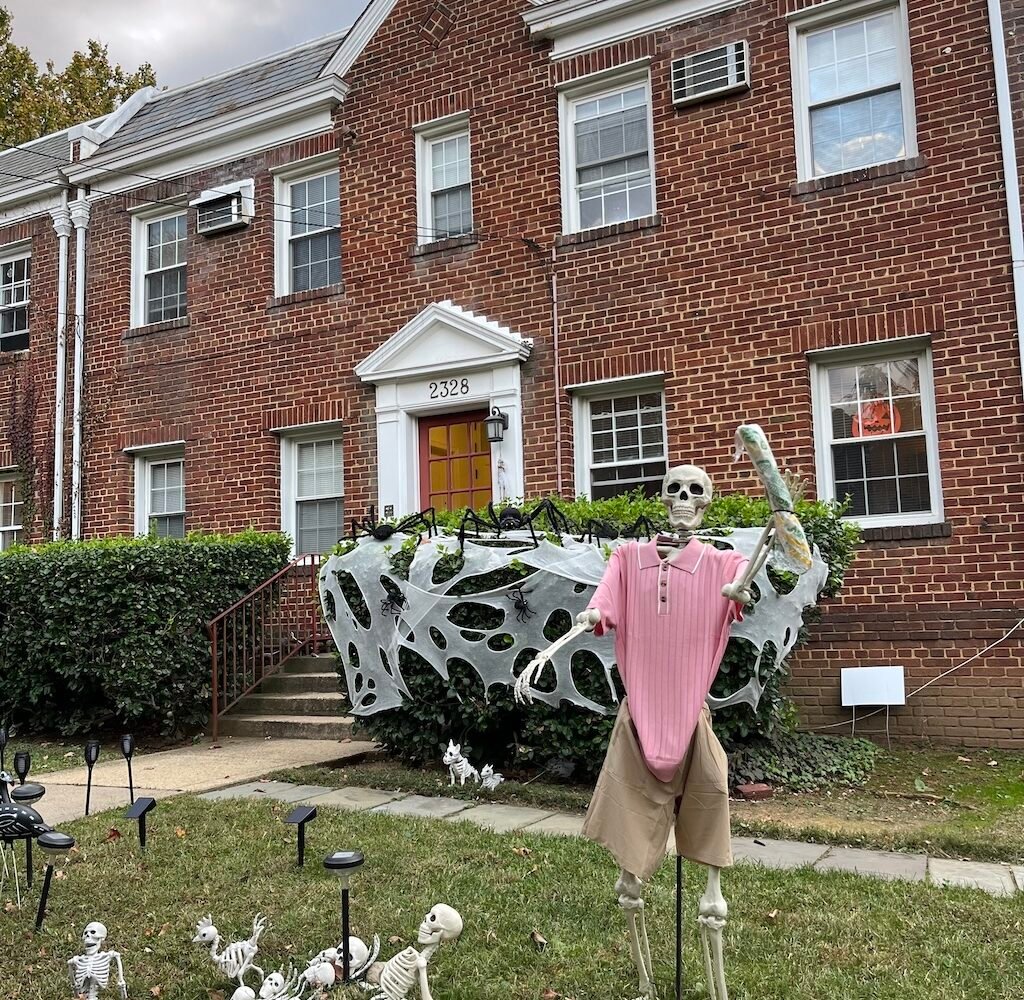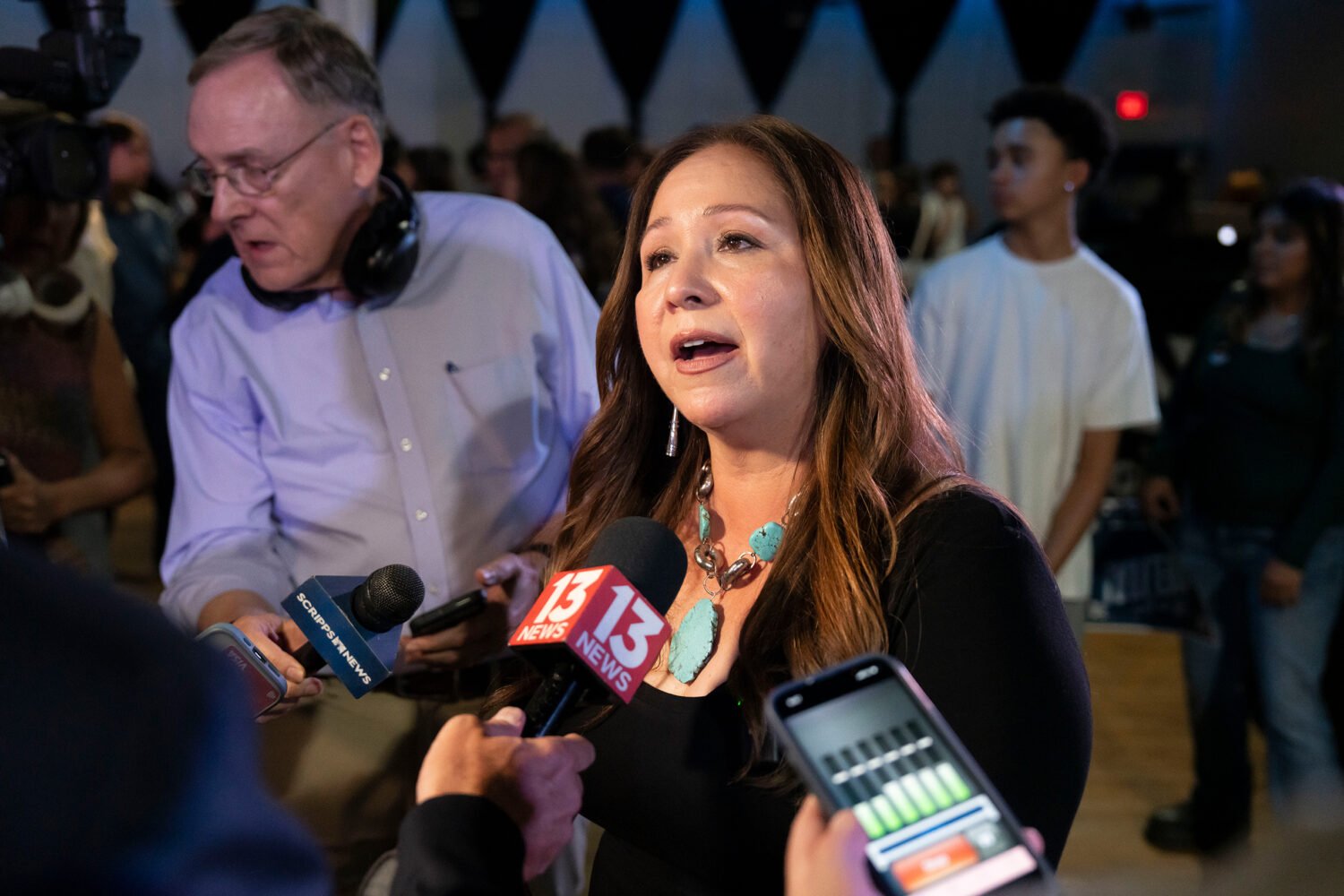It had been 363 days since Jacob Rainey played in a football
game, and on this September afternoon last year in Mercersburg,
Pennsylvania, plenty of people doubted he ever would again.
Rainey wasn’t among them. He had been one of Virginia’s most
promising high-school quarterbacks when, almost exactly a year earlier, he
suffered a gruesome injury that many assumed would end his playing career.
Today was supposed to be the day he took the field again. But doctors and
his coach at Woodberry Forest School, Clint Alexander, weren’t sure his
leg was ready, and they decided to hold him out one more week.
It was a setback but, after all Rainey had been through, a
minor one. “I wanted to be out there, but I’ll just have to wait,” he said
with a forced smile. “It’s fine.”
There would have been something symbolic to his stepping back
onto the field for a three-way scrimmage with the same teams from a year
before. The faux-Gothic buildings casting shadows over the field at
Mercersburg Academy were reminiscent of Duke University, one of the first
schools to start recruiting the six-foot-three, 225-pound Rainey and a
reminder that his college football dreams were still in doubt.
Worse, the Woodberry offense struggled against Mercersburg and
Oakton’s Flint Hill School, whose defenses Rainey had expertly dissected
just before he was injured. The bright side, it was suggested as Rainey
watched his replacement take another sack, was that once he took the field
again there’d be no pressure.
“I actually feel a lot more pressure now,” Rainey said, tapping
a white Nike on the grass and taking a quick glance at his new lower leg,
a piece of black titanium connecting the sneaker to his thigh. “Before, I
knew I could do it. Now . . . I don’t know.”
• • •
Roughly an hour and a half south of the nearest Metro stop,
Woodberry Forest School is a speck on the map in central Virginia. It’s a
place so secluded and exclusive that many locals aren’t exactly sure where
it is, but college football coaches from Stanford and South Bend could
find it blindfolded.

Though founded by a Confederate cavalry captain, Woodberry
Forest brings to life the traditions of the great Yankee prep academies, a
steppingstone to the Ivy League for sons of CEOs, celebrities, and even a
President. During the week, they roam mahogany halls and the perfectly
trimmed fairways on the campus’s Donald Ross golf course.
But on fall weekends, there is football. Real, Southern
football with pulled-pork tailgates and a pep-rally bonfire. The boys fill
the bleachers in white shirts and striped ties, hosting pretty girls in
pastel dresses.
“No one thought it was realistic for me to play last year, but I did.”
The boarding school’s 400 students come from 30 states and 17
foreign countries, but Jacob Rainey was a local product, from
Charlottesville, the son of an accountant and a nurse. Yet he had no
trouble fitting in at Woodberry.
From the time he was old enough to try throwing a ball,
football was Rainey’s life. When he was five, his mother, Kathy, had
trouble getting him to wear anything other than his Hutch replica Redskins
uniform, complete with plastic helmet. By fifth grade, he was starring in
local youth leagues. Football and academics led Rainey to Woodberry, where
he joined a long list of Tigers courted by Division I college
programs.
“His dream was to play in the NFL,” Rainey’s father, Lee, told
ESPN. “And I’m of the opinion he had what it took to do that.”
Coach Clint Alexander had arrived at Woodberry in 2005 and
quickly turned the Tigers into one of the top programs in the
Commonwealth, producing five consecutive Virginia Prep League
championships while sending 47 young men on to play in
college.
Alexander had built a dynasty on defense, and in Rainey he saw
a quarterback who could make his offense nearly unstoppable,
too.
“He was going to be that running-threat quarterback that
everybody looks for now,” Alexander says. “He was smart and knew the game
and was definitely motivated. He was doing all the little things. He was
putting in the time in the weight room. Some kids, especially
quarterbacks, love to go out and throw the ball all day but don’t like to
put in that kind of work.”
By the summer of 2011, before his season began, Rainey had
attracted attention from dozens of major programs. He’d drawn comparisons
to Tim Tebow, who’d won the Heisman Trophy at Florida in 2007. Like Tebow,
Rainey ran with the ball like a fullback, with the strength to run over
defenders and the speed—he was clocked at 4.6 seconds in the 40-yard dash
during his sophomore year—to run away from them. But Rainey may have been
the better passer.
The scrimmage with Flint Hill and Mercersburg, two other
private-school powers, marked the unofficial start of the 2011 season.
Wearing his orange number-9 jersey, Rainey took to carving up the
Mercersburg defense, making big gains both on the ground and through the
air.
On a 4th-and-1 near Woodberry Forest’s own 40-yard line, Coach
Alexander counted on his quarterback to get the first down, calling a
play-action pass for Rainey, who sucked the defense in with a fake handoff
before dropping back and launching a missile down the middle of the field,
connecting with a tight end for a 40-yard gain.
Sniffing the goal line, the Tigers called another play for
Rainey. In a shotgun formation with two backs at his side as his lead
blockers, he took the snap and hurried around the left end, but sensing an
opening in the middle of the field, Rainey cut right. A defensive back
trailing the play fell into his leg, crashing into his right knee and
crushing it against the hard turf.
Rainey blacked out for a moment. When he came to, he saw his
right knee jutting to the side and knew something was seriously wrong—a
realization that soon hit everyone on the field.
“It wasn’t even close to a big hit,” says Nate Ripper, one of
Rainey’s former Woodberry teammates, now a defensive lineman at the
University of Richmond. “But when Jacob rolled over, he was holding his
thigh and his knee was sticking off at a horrible angle. As soon as we all
saw it, the whole team broke down. We all knew instantly that he’d be out
for at least this season. He was down for a while before they were able to
get him to the hospital. I couldn’t breathe. I felt like throwing
up.”
In the ambulance, an EMT told Rainey his knee was dislocated
and he could expect a quick recovery. But at Inova Fairfax Hospital,
doctors realized that an artery in his lower leg was severed. Circulation
had been cut off, killing huge amounts of tissue. Rainey spent the next
few days in and out of surgery, and doctors concluded that the best,
perhaps only, option was amputation just above the knee.
That week, the rest of the team traveled to Richmond for the
first game of the regular season, against Benedictine. The Tigers were
celebrating a victory on the bus ride home, some of them smiling for the
first time in days, when tight end Greg McIntosh’s phone buzzed. He turned
in his seat toward Ripper, who wore Rainey’s number-9 jersey that day, and
showed him a text message from their friend:
“I have to have my leg amputated.”
“I didn’t believe it,” Ripper says. “I told Greg it had to be a
joke.”

Though suddenly an amputee, Rainey was getting even more
attention from college coaches. He heard from Virginia Tech’s Frank
Beamer, and Alabama’s Nick Saban sent a handwritten letter. Virginia’s
Mike London mentioned Rainey in his weekly press conference. Tim Tebow
invited Rainey to an NFL game, and the two became friends. But the tone of
the letters and phone calls had turned from courtship to
condolence.
Rainey sat in his hospital bed and said he would play again. To
some of his friends and family, it was a Hollywood moment, a determined
hero’s declaration. But Rainey doesn’t remember it that way. He doesn’t
remember it at all—he says he was in a fog induced by
painkillers.
Rainey was good at putting on a smiling face, but he often had
insomnia due to withdrawal from his pain medication, sometimes staying up
all night trying to adjust to his new life.
He returned to Woodberry that
fall and watched from crutches on the sidelines as his teammates won
another Prep League title. While his friends created highlight videos and
met with college coaches, they talked about Rainey’s playing career in the
past tense. But a week after taking his first step on a prosthetic leg, he
was throwing. Soon he was throwing well, perhaps better than
ever.
“He’d always been a guy who threw really hard from his upper
body, so losing a big part of that plant leg didn’t set him back as far as
you would have thought,” Alexander says. “The kid still has a
cannon.”
Rainey began working with a team of doctors, therapists, and
prosthetists. At first his new leg was much like the crutches he’d been on
for weeks, used mostly for balance, and walking was more a matter of using
his body to move the leg around than of the leg helping move his
body.
But soon he was putting weight on the prosthesis when he
walked. Before long he was running. By summer he was working out with
teammates and coaches, taking snaps, handing off, throwing passes. He was
playing quarterback. But that wasn’t enough for Rainey.
“When I got hurt, I kind of let everyone down,” he says. “They
were expecting big things from me, and I got hurt. I wanted to get back
out there with all the guys and help—help win.” And he wasn’t ready to let
go of his dream of playing for a bigtime college program.
Six days after he had to sit out of the three-team scrimmage in
Pennsylvania, Woodberry Forest played Benedictine again, and this time
there were tears of joy as Jacob Rainey trotted onto the field for the
Tigers’ first offensive series.
He obviously wasn’t the same, still getting used to a new way
of running, forced to extend his prosthetic leg farther than his natural
stride. He’d no longer be able to plant his foot, drive hard off the
ground, and bowl over a defender who dared get in his way, but he was on
the field, about to play football again.


A small stadium full of onlookers held their breath as Rainey
took the first snap, turned, and handed the ball off for a modest gain.
The next play was a short pass behind the line of scrimmage that gained
eight yards. Two plays later, he guided the Tigers into the end
zone.
“It almost didn’t even seem real. We had gone from holding his
hand on the field that day to him leading us down for a touchdown,”
Alexander says. “It was unbelievable. Even the Benedictine coach said it
was hard not to be happy for him.”
• • •
Woodberry, like the Ivy League schools it so often feeds,
doesn’t participate in a postseason football playoff. After missing the
exhibition, Rainey was left with just ten regular-season games to prove to
college coaches he could still play.
Over the next few weeks, he settled into a new role as a
backup. Current prosthetic technology makes it possible for amputee
athletes to run fast in a straight line, but Rainey didn’t have the
ability to cut, twist, and turn that he needed to be the quarterback he
once was. His replacement, Hunter Etheridge, was improving each week and
began attracting attention from lower-level Division I
programs.
Rainey’s play was solid—he completed two passes for 25 yards
and a touchdown against Paul VI, and three for 44 yards and a score
against Kiski School—but his time on the field was scarce. The rest of the
world viewed his return to football as an amazing success story; the
New York Times Magazine ran an article that detailed his recovery
and marveled at the work of the prosthetists. But Rainey’s frustration
grew with every snap he had to watch from the sidelines.
November brought the two most important games on Woodberry
Forest’s 2012 schedule: a trip to nearby Fork Union Military Academy with
a sixth straight Prep League title on the line, followed by the Tigers’
annual season finale versus archrival Episcopal High School from
Alexandria.
The year before, local fans had argued over whether Rainey or
Fork Union’s Christian Hackenberg would emerge as the top quarterback
prospect in central Virginia. Since then, Hackenberg, a Penn State signee,
had dazzled observers at summer camps and elite scouting combines with his
rocket arm and superior field vision, becoming the number-one-rated
high-school quarterback in the US.
Still, Rainey believed he was ready to go head-to-head with
Hackenberg and lead the Tigers to victory. But the weather didn’t
cooperate. It poured the first week of November, and Alexander decided he
wouldn’t play Rainey, fearing for his safety on the muddy
field.
“I couldn’t bear the thought of risking him getting hurt,”
Alexander says. “His story was too important to too many people. We had a
little boy in here to visit Jacob who lost his leg in a lawn-mowing
accident, and it meant so much to that family. He had inspired a lot of
people, and I wasn’t going to put him in a situation where he might not
succeed.”
Rainey was ticked. Another precious opportunity missed, an
afternoon spent watching Hackenberg tear apart the Woodberry defense,
throwing for four touchdowns and leading the Blue Devils to a 42-14
victory.
“I could have been out there,” Rainey says.
But the hard feelings subsided as the Tigers entered the best
week of the season for both the team and Rainey.
“My goal all year,” Alexander says, “was to start him against
Episcopal.”
Taking cues from a player who had been through more than any of
them could have imagined, the Tigers routed Episcopal 44-14, with Rainey
leading two consecutive touchdown drives.
“That’s our biggest game of the year and all our alumni come
back, and he got to play in front of 5,000 people and was the star of the
show,” Alexander says. “That was a gift we wanted to give him, and he went
out against Episcopal and tore it up.”
• • •
Students returned to Woodberry Forest from the winter break in
January, and many days players were joined by college coaches trying to
lock down recruits before the day in February when they could sign a
national letter of intent with their chosen school. The flood of
recruiting letters and phone calls to Rainey had stopped. Some small
colleges considered taking a chance on the amputee QB, but Rainey still
hadn’t given up on joining a Division I team.
The scholarship offers weren’t there, but Mike London, the
University of Virginia coach who was among the first in Division I to
identify Rainey as a potential recruit, still saw a role for
him.

“I said, ‘I want this guy on our team,’ ” London says. “That
didn’t necessarily have to do with wanting him to be a quarterback on the
team. We had to have a conversation that dealt with his
situation.”
During the first week of 2013, London offered Rainey a spot on
the roster as a preferred walk-on. Rainey might never play in a game, but
he will serve as a student assistant, a kind of coaching apprentice, under
Cavaliers offensive coordinator and quarterback coach Steve
Fairchild.
Which means that Rainey may once again be on track to making a
career in football, albeit not the career he’d imagined.
“He’ll be assisting in breaking down film, assisting in all the
on-field coaching opportunities,” London says, noting that he has no plans
to put Rainey into full-contact drills. “He can learn with Coach
Fairchild, who is an excellent quarterback coach, and he can learn the
finer points of playing the position. It could be a springboard to a
coaching career if he wants that.”
London and other UVA spokespeople have stressed that Rainey’s
role is that of a student coach. Even Rainey has acknowledged there’s no
way he’ll take the field this fall. But talk to him for a while and it’s
clear he hasn’t given up on playing.
“We decided it would be easier for me my freshman year to ease
into things and be a student coach,” he says. “I could be a student coach
my whole time, but my ultimate goal is to play again. I believe I can do
it. No one really thought it was realistic for me to play last year, but I
did.”
• • •
As any coach will tell you, when the body gets tired, it isn’t
the legs that give out first—it’s the mind. This was apparent as the
late-summer sun hung over the field that day last year in Mercersburg,
beating down on the players.
Rainey, forced to the sidelines with his return to football
delayed a week, could see his teammates’ mistakes adding up. Used to
fielding teams full of talented seniors, this Woodberry Forest group had
underclassmen in several key roles. Earlier in the day, Alexander had
noted that as much as the team missed Rainey’s athleticism, what it needed
even more was his leadership.
After spending most of the previous season’s games standing on
crutches or sitting on a cart, now he was on two legs, stalking the
sidelines with the coaches, pointing out formation shifts and hollering
advice and encouragement.
“I never really thought past my playing days,” Rainey would say
months later. “But if I really enjoy coaching, I think I would be
interested in a career. Most people don’t get to start quite as early as
I’m getting to. It could be an advantage.”
He cheered as the Tigers’ defense made a stop on a third down,
before noticing Flint Hill’s offense staying on the field, opting to go
for it on 4th-and-1. Examining the Huskies’ formation, Rainey looked at
the assistant coach standing next to him.
“Gotta watch the ball!” he yelled at the linemen, then turned
to his right, quietly addressing the coach: “They’ll probably go on
two.”
Just as he predicted, Flint Hill’s quarterback sold a hard
count, a staccato “hut hut,” fooling players on both sides, who jumped
offsides before the ball was snapped. The officials jogged toward the
ball, blowing their whistles and littering the field with penalty flags as
Rainey and the assistant shook their heads. Neither could help
smiling.
Here was a coach in the making.
Shane Mettlen is a freelance journalist and former
digital-content coordinator at the Daily Progress in Charlottesville. He
is on Twitter @shanemettlen.
This article appears in the October 2013 issue of The Washingtonian.

